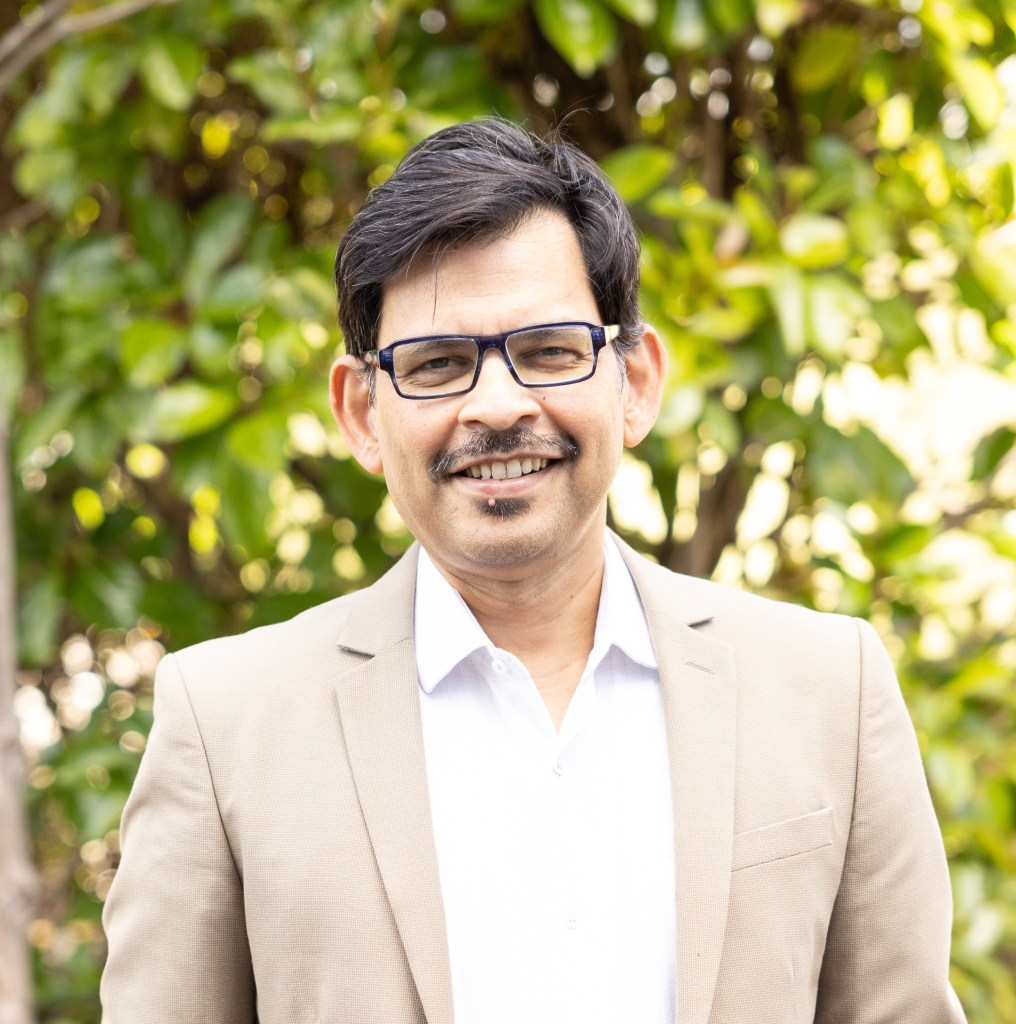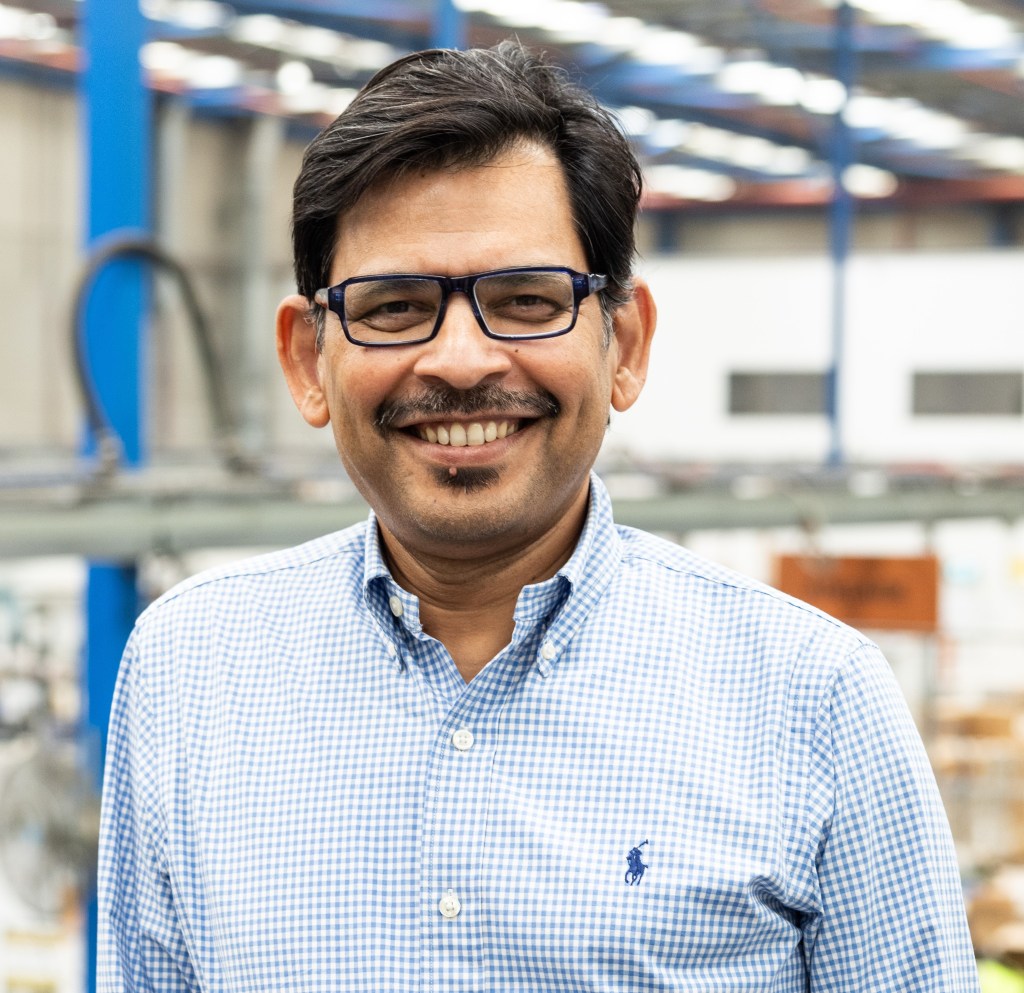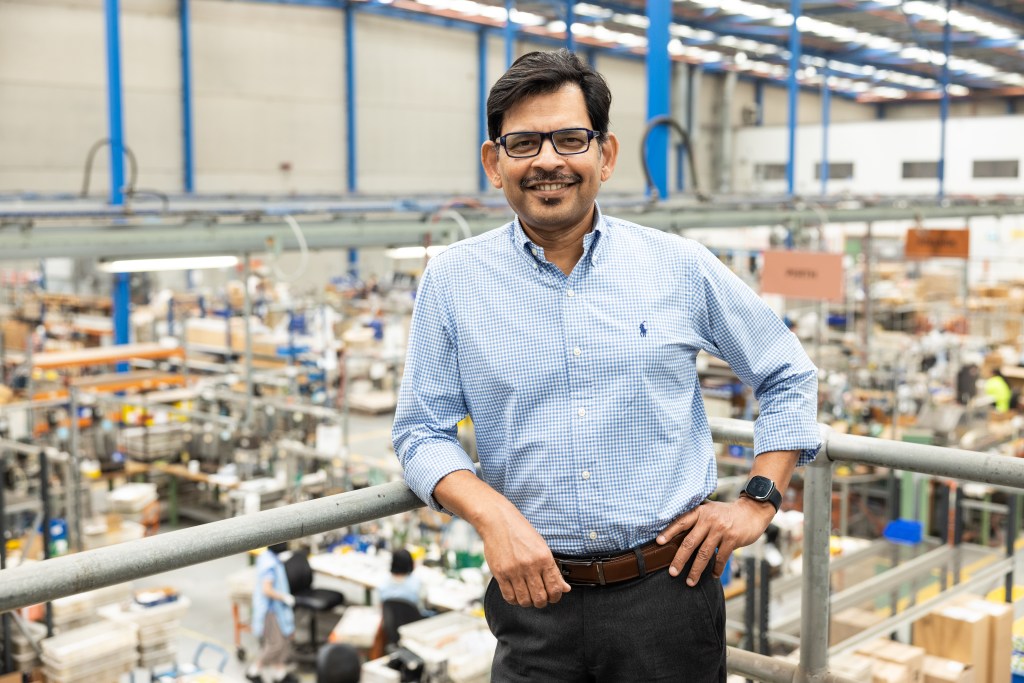How this CEO is keeping manufacturing local and growing more leaders:
BRANDVOICE – SPECIAL FEATURE

Palash Nandy wants more Australians to know the value of making things locally, and that the manufacturing business he leads from Sydney has been in ANZ for the last three decades – with the facility being modern, sustainable and here for the long term.
He also firmly believes that attaining and retaining great team members should be a leader’s number one priority.
Appointed CEO of Legrand Australia and New Zealand in early 2022, Nandy has made an international career out of his 33 years with the global manufacturing group, taking leadership positions in India, France and now Australia.
He’s made it happen by having the customer at the epicentre of his strategy, putting his trust in those he leads, and always thinking about improving the lives of his customers and colleagues.
“Many years ago, a mentor told me, ‘Your job as a manager is to build more managers’. This has always stuck with me, this idea that I need to support more people to become managers and leaders,” Nandy tells Forbes Australia.
The Legrand Group’s purpose is improving lives by transforming the spaces where people live, work and meet via connected solutions that are simple, innovative and sustainable, with this focus on improving lives being both an internal ethos for its team as much as it is an external purpose for its customers.
Legrand specialises in products and systems for electrical and digital building infrastructures, meaning meeting local specifications, standards and habits is essential.
With 400 people across Australia and New Zealand, and a local headquarters in Prestons, Sydney, the ANZ operations of the global Legrand network manufactures or distributes more than 20,000 skus under six strong brands.
People are especially key to the company that has had operations in Australia for more than 30 years, with Legrand having ambitious and concrete plans for the future.
Legrand is bucking the trend here. Manufacturing as a share of the Australian economy has been in slow decline since its peak in the 1960s when it made up 30 per cent of the economy and employment. It accounts for less than 10 per cent of GDP today, according to 2021 figures from the Australian Government Productivity Commission.

“Whenever I bring customers to the local facility at Prestons, they are always surprised to see the level of investment we have made in our Australian factory and R&D, as well as our logistics centre and head office. They still don’t believe so much manufacturing is happening here,” Nandy says.
Although a lot of manufacturing has disappeared from Australian shores in recent years, Nandy says Legrand remains competitive with their operations, and notes some significant benefits to keeping it local.
First and foremost is the ability to design and manufacture products and solutions that are perfectly in tune with ANZ needs. Second is the quick turnaround and flexibility that comes from both a local R&D and manufacturing operation. Other benefits include access to great customer service, a competitive offering and being responsive to clients.
Underpinning all of it, Nandy explains, is people.
“Whether it’s tech or resources, these are no longer the only key differentiators for businesses,” he says. “If you want to build a sustainable and strong organisation, you need to have great people.”
Legrand Australia has a number of different employee initiatives that demonstrate this focus on people. Examples include bringing ‘early in career’ – or people just starting out in their professional employment pathways – into the business, with plans to offer 45 internship opportunities by the end of 2023. The company also provides a mentoring program that sees the Executive Team acting as mentors to select employees, expanding on the launch of a successful pilot mentoring program in 2022 that saw the CEO mentoring a group of team members. Soon, Legrand Australia will launch its Rising Talent program, aiming to develop effective and influential future leaders by growing their leadership skills and fostering their self-awareness and personal growth.
Overall, Legrand Australia has a committed workforce, with the average length of service being 11 years. Its Australian workforce is 42 per cent female, exceeding overall industry figures where just 27 per cent of Australia’s manufacturing workforce is made up of women, according to the Workplace Gender Equality Agency.

A focus on diversity and inclusion is also critical for the employer. So much so, that it’s included as a key value in Legrand’s CSR roadmap.
“Every year we are measured not only on the financial parameters, but also on non-financial parameters,” he says, noting pillars of the company’s CSR roadmap include promoting diversity and inclusion, reducing carbon footprint, developing a circular economy and being a responsible business.
Nandy has personally benefited from mentoring programs throughout his own career and from experience across different departments within the organisation, which is why he is a firm believer in supporting others to take on new and challenging opportunities.
“The world is changing so fast, the knowledge of yesterday is already stale today if you’re not constantly upgrading the skills of your people,” he says. “But as a business, you also need to find a compelling reason for people to stay.
“When you’re looking at sustaining success over the long term, and in a market where consumers have plenty of choices, then it becomes obvious that the differentiator between competitors is not only the product, but the entire value chain.
“And it is people who make the difference across that value chain. My objective is to foster an environment where people with different knowledge and skillsets can come together and create solutions that focus on improving lives, and in that process challenge their boundaries with a ‘can do’ attitude. I encourage my team to come up with practical solutions and spend time listening to both internal and external customers and stakeholders. I believe that the majority of the good solutions come about when we are able to fully understand our customer’s needs.
“If you can achieve that, the rest is easy. Of course, you need to have your CRM in place, your great tech stack etc – but any organisation can be using those tools. If you don’t have the right mindset across your people, then you can’t differentiate.”
Nandy adds that strong leaders support individuals to understand their full potential and what they’re truly capable of.
“If you’re very good at something but you’re not constantly improving, then the future is not going to be good. The world is constantly changing, leaders need to challenge the status quo,” he says.
Overall, he says he embodies the culture the organisation tries to promote – one that emphasises inclusion and learning, to support people to ultimately want to stay with the business.
“The fact I’ve been here 33 years tells you two things. One is that this is an organisation that people love to be a part of. And two, that Legrand offers an environment where team members are given opportunities to continue to learn, develop and grow.”